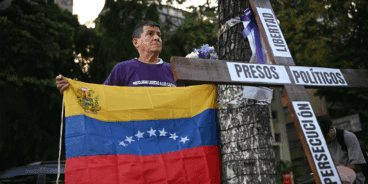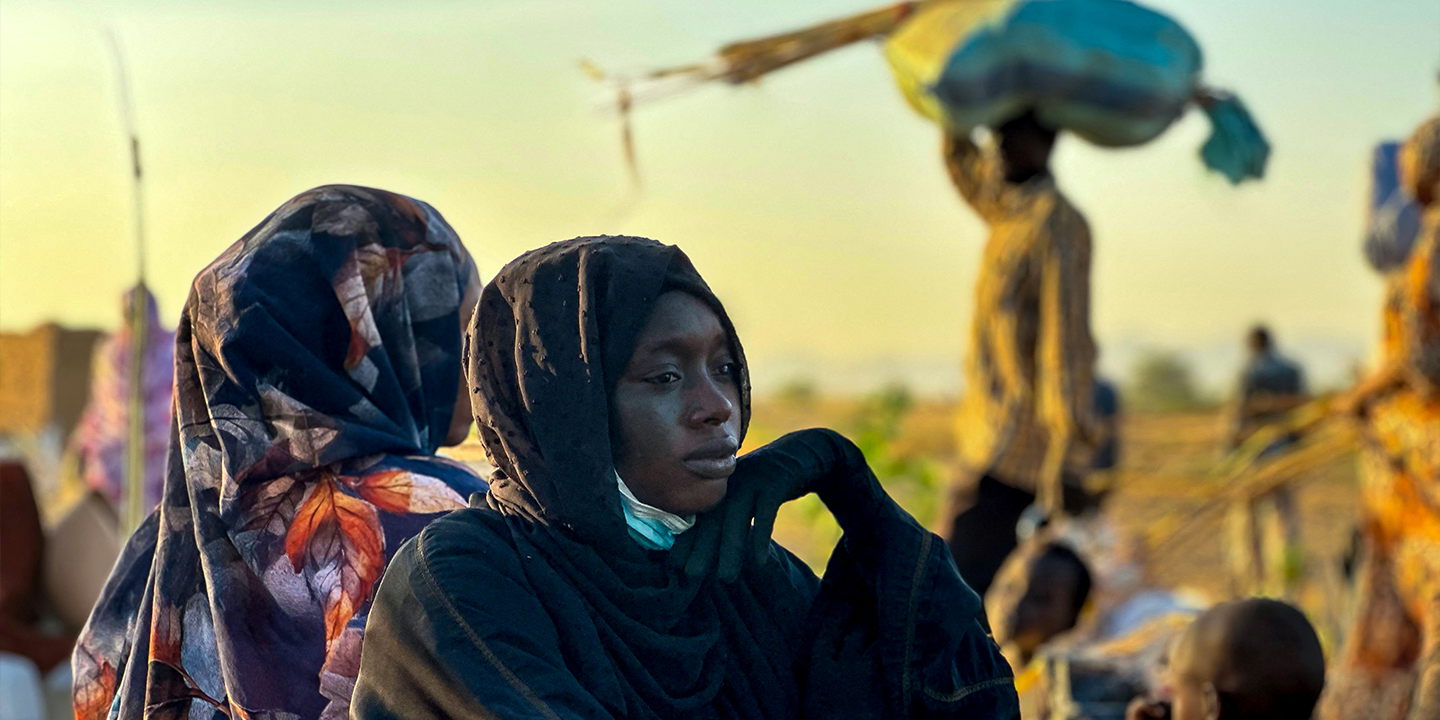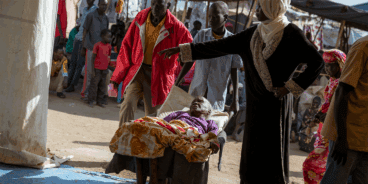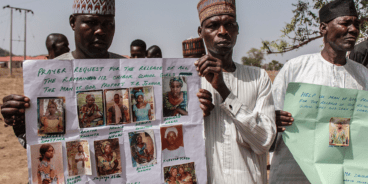

Atrocity Alert No. 456: Sudan, Cameroon and Nicaragua
Atrocity Alert is a weekly publication by the Global Centre for the Responsibility to Protect highlighting situations where populations are at risk of, or are enduring, mass atrocity crimes.
ATROCITIES SURGE AS RAPID SUPPORT FORCES SEIZE EL FASHER, DARFUR
After besieging El Fasher, the capital of North Darfur, for 18 months, on 26 October the paramilitary Rapid Support Forces (RSF) announced it had taken control of the city. Local sources report that the Sudanese Armed Forces (SAF) and its allies withdrew from the 6th Infantry Division headquarters, their final stronghold in El Fasher, late Saturday after sustained bombardment.
An estimated 36,183 people have fled between 26 and 29 October, while many others remain trapped inside the city. RSF-recorded videos show fighters firing on escaping civilians and detaining thousands, while the fate of many remains unknown. The UN Human Rights Office has received alarming reports of atrocities committed by the RSF fighters, including summary executions. With telecommunications cut off, assessing the situation on the ground has become nearly impossible. Satellite imagery reveals house-to-house clearance operations and evidence consistent with the presence of human bodies near RSF vehicles. The humanitarian situation is catastrophic, with civilians facing severe shortages of food, water and medical care.
According to human rights organization Avaaz, videos shared on social media show RSF fighters repeatedly using the derogatory term “falangayat,” historically associated with enslaved people, to demean both African communities in Darfur and anyone perceived as affiliated with the SAF. For over two years, the Global Centre, Sudanese civil society and others have sounded the alarm, warning that the RSF’s pattern of systematically targeting non-Arab communities across Darfur, in conjunction with the destruction of critical civilian infrastructure, appears to be a continuation of their campaign of ethnic cleansing, potentially amounting to acts of genocide. On 27 October the UN High Commissioner for Human Rights, Volker Türk, warned that “the risk of further large-scale, ethnically motivated violations and atrocities in El Fasher is mounting by the day.”
The RSF’s capture of El Fasher, as well as recent advancements in North Kordofan, mark a major strategic turning point in the conflict that has devastated Sudan since April 2023. With the RSF now controlling nearly all major urban centers in Darfur, SAF authority in the region appears to have drastically diminished. These advances may also signal a de facto partition of the country, strengthening the RSF’s leverage in any future political negotiations while simultaneously undermining international efforts to secure a ceasefire and a civilian-led political transition.
The ongoing crisis in Darfur has exposed the international community’s continued failure to respond decisively and effectively, despite 18 months of escalating violence and civilian suffering. As the conflict enters a critical phase, urgent action is needed to protect civilians. The international community must urgently intensify diplomatic pressure and demand that all parties comply with international law. Warring parties must immediately guarantee safe and unimpeded passage for civilians wishing to leave El Fasher and ensure that humanitarian aid can be delivered safely. External actors who have fueled the conflict, particularly the United Arab Emirates, must be held accountable for prolonging violence and enabling the targeting of civilians.
RISING POLITICAL UNREST IN CAMEROON AFTER PRESIDENTIAL ELECTION
Widespread protests have erupted across several Cameroonian cities following the 27 October announcement by the Constitutional Council declaring 92-year-old President Paul Biya the winner of the presidential election, securing an eighth term with 53.66 percent of the vote. Tensions have steadily risen since Cameroonians voted on 12 October, particularly among supporters of opposition candidate Issa Tchiroma Bakary, who contested the results and claimed victory. At least six people were confirmed killed and over 100 were arrested as security forces moved to disperse demonstrators. On 27 October the UN Human Rights Office stated on social media that it had received “shocking reports of people killed, injured or arrested” in connection with the election results, calling “for restraint, investigations and an end to the violence.”
The day before the official results were announced, hundreds of protesters took to the streets in Douala and Garoua and accused the government of electoral fraud and demanded a fair vote count. In Douala, supporters of Bakary defied a ban on demonstrations, setting police vehicles on fire, barricading roads and burning tires. According to local sources, protests rapidly spread across several neighborhoods and escalated after police and anti-riot gendarmes allegedly used tear gas, water cannons and live ammunition to disperse crowds.
Meanwhile, in the Anglophone north-west and south-west regions, armed separatist groups imposed a month-long lockdown to undermine the election’s legitimacy and demonstrate authority. The restrictions heightened tensions and severely disrupted daily life, forcing the closure of businesses, markets and schools. In several cities, including Buea and Limbe, residents were largely confined to their homes amid threats and violence from armed groups.
President Biya, in power since 1982, faces long-standing criticism for authoritarian governance, repression of opposition voices and persistent corruption, poor public services and economic inequality that have persisted during his tenure. Cameroon is also confronting multiple security challenges, including in the Far North region, where populations face atrocity risks posed by the armed extremist group Boko Haram. In the Anglophone regions, civilians have endured violence from both armed separatist groups and government forces, including targeted killings, abductions and widespread displacement for nearly a decade.
The current political unrest highlights the urgent need for inclusive dialogue and credible mechanisms to address electoral grievances. Security forces must exercise restraint and uphold human rights obligations. The government should immediately investigate all reports of killings, arrests and abuses linked to the post-election protests and ensure respect for fundamental freedoms, including the right to peaceful assembly, association and expression. In addition to political reforms, urgent protection measures are needed for civilians in conflict-affected regions to prevent further instability and human rights violations.
NICARAGUA EXPANDS TRANSNATIONAL REPRESSION TO SYSTEMATICALLY ERADICATE DISSENT
In its latest report to the UN Human Rights Council, the Group of Human Rights Experts on Nicaragua (GHREN) warns that the Nicaraguan government is escalating its systematic campaign of transnational repression as “part of a consistent and deliberate State policy to silence dissent, eradicate opposition voices abroad, and guarantee impunity for crimes committed inside Nicaragua,” including crimes against humanity.
The GHREN reports that thousands of Nicaraguans living in exile are being targeted by severe and comprehensive policies meant to systematically dismantle every aspect of their lives. These include the arbitrary deprivation of nationality, entry bans, refusal to issue or renew passports, deletion of civil records and systematic threats, harassment and surveillance. The report also highlights the instrumentalization and misuse of international systems such as INTERPOL red notices, false alerts on travel documents or the abuse of financial compliance frameworks to obstruct dissidents’ movement and deny them access to essential services.
Inside Nicaragua, family members of exiled dissidents face reprisals ranging from harassment and arbitrary detention to the confiscation of property. These measures systematically strip victims of their legal identity and recognition before the law, effectively rendering many stateless and without access to asylum or remedies. Victims describe this orchestrated erasure as a form of “civil death,” intended to tear families apart and perpetuate a climate of fear and silence at home and abroad.
The GHREN further documents an escalation into physical violence, with murders and assassination attempts against Nicaraguans in exile since 2021, including the killing of a prominent opposition figure in Costa Rica in June 2025. The experts conclude that “nowhere in the world seems to be safe for Nicaraguans opposed to the Government.”
This expansion of repression beyond Nicaragua’s borders marks the latest phase of the country’s descent into authoritarian rule. Since the brutal crackdown on street protests in 2018, the government under co-Presidents Daniel Ortega and Rosario Murillo has dismantled democratic institutions, suppressed independent media, civil society and universities and weaponized the judiciary to facilitate political persecution.
Elisabeth Pramendorfer, Latin America expert at the Global Centre for the Responsibility to Protect, warned, “Having nearly eliminated dissent at home, repression is now exported abroad while the government has cut itself off from regional and international scrutiny. This dual strategy – external persecution and institutional isolation – leaves Nicaraguans everywhere in the world at risk.” UN member states must urgently implement the GHREN’s recommendations to strengthen protection for Nicaraguans in exile. This includes implementing fair and expedited asylum and naturalization procedures for those stripped of nationality and building a more coordinated international response to ongoing crimes against humanity inside Nicaragua.
Related Content


Atrocity Alert No. 462: Sudan, Haiti and Mozambique
